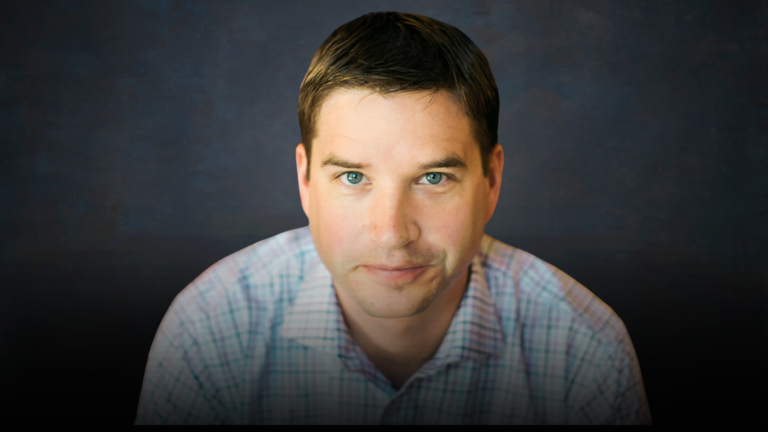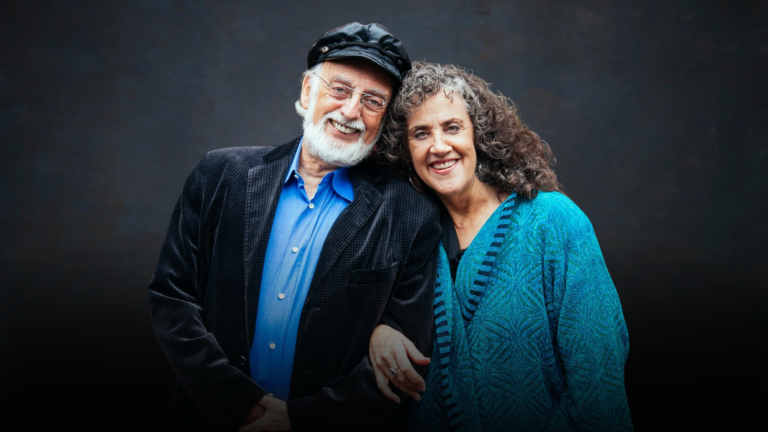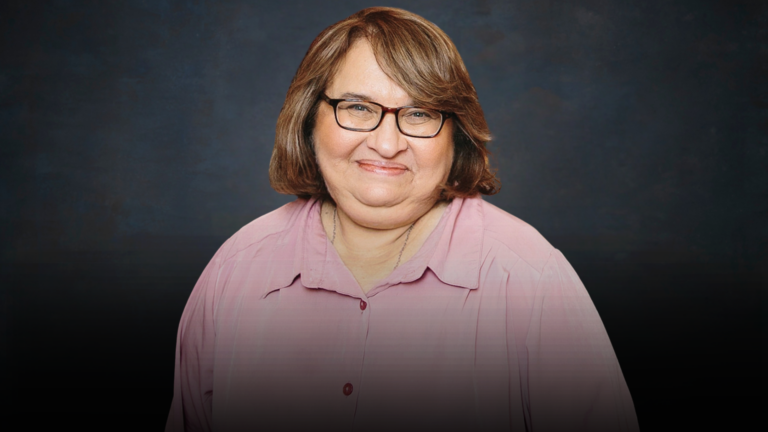This week’s conversation is with Oksana Masters, a 17x Paralympic Medalist.
Oksana has competed in each of the last six Paralympic Games (both summer & winter), and has brought home medals in four different sports – rowing, cross-country skiing, biathlon, and cycling. That is legit.
Following the Beijing Paralympics in 2022, Oksana became the most decorated US Winter Paralympian or Olympian ever.
This conversation could have focused solely on Oksana’s Paralympic triumphs, but that would have missed the true depth of her story – and she has an unbelievable story.
It’s the story of a girl who spent her earliest years growing up in three corrupt and abusive orphanages in Ukraine – a girl who was born with radiation poisoning from Chernobyl and lost both her legs – a girl who was saved by a heroic mom – and the story of a girl who, despite so many adversities, has become a remarkable woman living to the upper limits of her potential.
This conversation is so rich. We explore Oksana’s journey, how she navigates setbacks and challenges, and the mental skills she uses both in life, and as a world-class athlete. I think everyone will have something valuable to learn from Oksana’s story and insights.
“I really hope that you feel empowered, when you hear my story, to find your own superpower within the hard parts you have and tackle the world.”
In This Episode:
Her birth conditions
I was born in Ukraine and I was born three years after the Chernobyl radiation leak happened. The radiation levels, which people don’t even know to this day, are so high and so strong and keep rising that there’s around 100 miles around where Chernobyl is, which is just dead land right now. And when my birth mom was traveling, and she must have eaten something or in that area that was affected by radiation, that resulted in when I was in her stomach, resulting in my deformities, disabilities, I guess. I was born with my legs. And it wasn’t until I got to America that I went to my first dentist and they took x-rays, and my adult teeth, they saw radiation in my teeth.
Early years in Ukrainian orphanages
Because of all the stuff that was going on, I was put right to an orphanage because my birth parents didn’t have the resources for the medical care I was going to need. And they thought they were going to be giving me a better life in the orphanage where they could potentially give me what I need. And that wasn’t the case. I lived in three different orphanages straight from birth until I was adopted when I was seven and a half. And within those three orphanages, the one I remember the most and the one that my memories are so vivid that are in the book, and I share a lot, but there’s some things that I just don’t share in the book of the memories, because I’m still trying to figure out how to put words to the things that I experienced. But the last one is where a lot of the stuff happened, and there was just mistreatment, abuse, physical, sexual, starving to death, and just being extremely malnourished.
Laney, one of her heroes
My friend Laney, who was one of my best friends there in the orphanage, and the last one was protecting me from, until she was gone. And when I say gone, I mean, I’m not going to say the specifics because you can read about it, but she didn’t just pass away peacefully. Unfortunately it was a pretty traumatic way that I had to watch her die. And that’s a guilt that I have with me because it was my fault for what happened, and why we were out of our rooms. But that’s why I wanted to write this book is because I’ve always felt so guilty. And I always wondered, why did I make it out? Why was I the one that made it and she wasn’t? I didn’t understand it. And then I felt guilty about it, and this was my way to honor her legacy and make her story so that she is someone. It didn’t just go unknown. And she is there, and she’s been there part of my journey the whole entire time.
Her secret weapon in competition
Every time I race, there’s so many times and moments whether I’m training or racing and I feel like literally sometimes a push, and I’m looking back to see who it is and I’m by myself. And in my mind that was my way of telling myself that is Laney saying, “I’m right here by your side still.” And that she’s never left, and all that kind of stuff. So, I’m pretty lucky because I have that extra secret weapon that not a lot of athletes have. And when I get really, really tired specifically, and when I feel that and I think someone’s behind, it’s a competitor pushing me, sometimes it is, because it gets racing, it happens. But I’m pretty lucky to have that. And it’s like that second wind.
Re-writing her story
It was that invisible scar tissue inside that was also something that was written for me. And I had to relearn how to rewire my brain and my process when I look in the mirror, in addition to going through amputations two separate times in my life… And society determines people with disabilities that I’m invisible, I’m not worthy of setting goals, let alone achieving those goals, or love, or being seen. And my biggest pet peeve is determining what I’m capable of achieving and doing based on what their limited view is. And so, in that aspect my story’s been written for me as the girl with a disability, as an orphan, as an abused orphan, as a female in sports, and being a smaller statue built and stuff. And I wanted to rewrite my own story.
A rose is still – and always will be – a rose
I am an Aretha Franklin fan, and there was a song that just hit my heart and I identified so much with it. A specific lyric, which is a rose is still and always will be a rose, doesn’t matter what form it’s in. Well, she said that. My metaphor and taking it the way I interpreted it was, yeah, you’re right. It doesn’t matter. a rose, whether it’s a dead rose, a thriving, beautiful colored rose, or a halfway dying rose, it will always be a rose still.
Her rose tattoo
I got this tattoo specifically placed over a scar that I had, and the way I received that scar was super traumatic.. It’s a rose that is thriving on one side, and is transforming into a dying black and white rose, and kind of frailing away. And it says a rose is still and always will be a rose, on the words on the sides of it. And that was for me to remember when I look at that, not to see the scar, but to see that no matter what was taken away from you, that you’re still worth it. You still deserve love, and you still are a person, and you still can love yourself.
Being in the driver’s seat
It’s going to sound so weird, but I’m so thankful for what I experienced and what I went through, and my mindset, instead of being so angry I was at that time, because of what I lived and what I experienced, and now these are tools I have because I walk that path. I now know when nothing’s going to get as bad as that, first of all. And now what I’m doing here, I’m in complete control and can have the option to choose how I want to approach this.
Paralympians are much more than their disabilities
When you think of an athlete like Serena Williams, or Michael Jordan, the first thing that pops into 90% of people’s minds is what they’ve achieved. And that GOAT, greatest of all time. But when you think of a Paralympian and you think about, “Oh, well what happened to your body? Where’d you come from?” And it’s beyond frustrating to be constantly seen, not by what you’re doing, what your actions are, what you have done with your life despite of where you come from, the past you’ve walked, and there’s still the past. People want to focus on that. And there’s this discrepancy in the way we view professional athletes, businessmen, and business women. I mean, it’s not just in athletes. It happens everywhere and people kind of pity in some ways, and have this very different approach. And just want to change the tone, and the conversation, and the dialogue of paralympic athletes. The sweat equity is exactly the same as professional athletes, as Olympic athletes. Not just athletes, like I said, but also in the business world. You go and get a degree, college degree, you work your steps up and you’re a business owner, or a CEO, whatever it is, it’s not where you come from. That’s important, it’s shaped you, but it’s not your identity of who you are. It’s exactly what you’re doing at this moment and your actions.
Luck
I’m pretty lucky. I don’t know what else you explain besides just luck. The chance that my mom saw a picture of me, and she tried to get me when I was five is when she learned about me. Ukraine closed adoptions and put a moratorium on all of foreign adoptions, and there’s a ban. And the U.S. did the same thing. I don’t know any other word except luck, because during those two years everyone was telling her to just, “You can go to Russia, you can get a baby. You wanted a baby. You can have a kid in a month. You don’t know when this is going to happen. You don’t know when, if she’ll still be alive,” and all this stuff. And she waited for me. That’s luck in that moment, because I didn’t control that.
What she hopes for
All I want is to be that person behind the scenes where no one knows who or what, or why this one part of this world is better. And oh my gosh, this sport is incredible. I just want to leave my imprint. I don’t want to leave a record, because that is going to get diminished at some point. I just want to leave an imprint of a better world, and it’s better because I had one little ounce of grain of sand to put into that giant pot that we all contribute to.
Her book is for YOU
Yeah, you can learn a little bit about me, but I really hope that you feel empowered, when you read my story, to find your own superpower within the hard parts you have and tackle the world.



